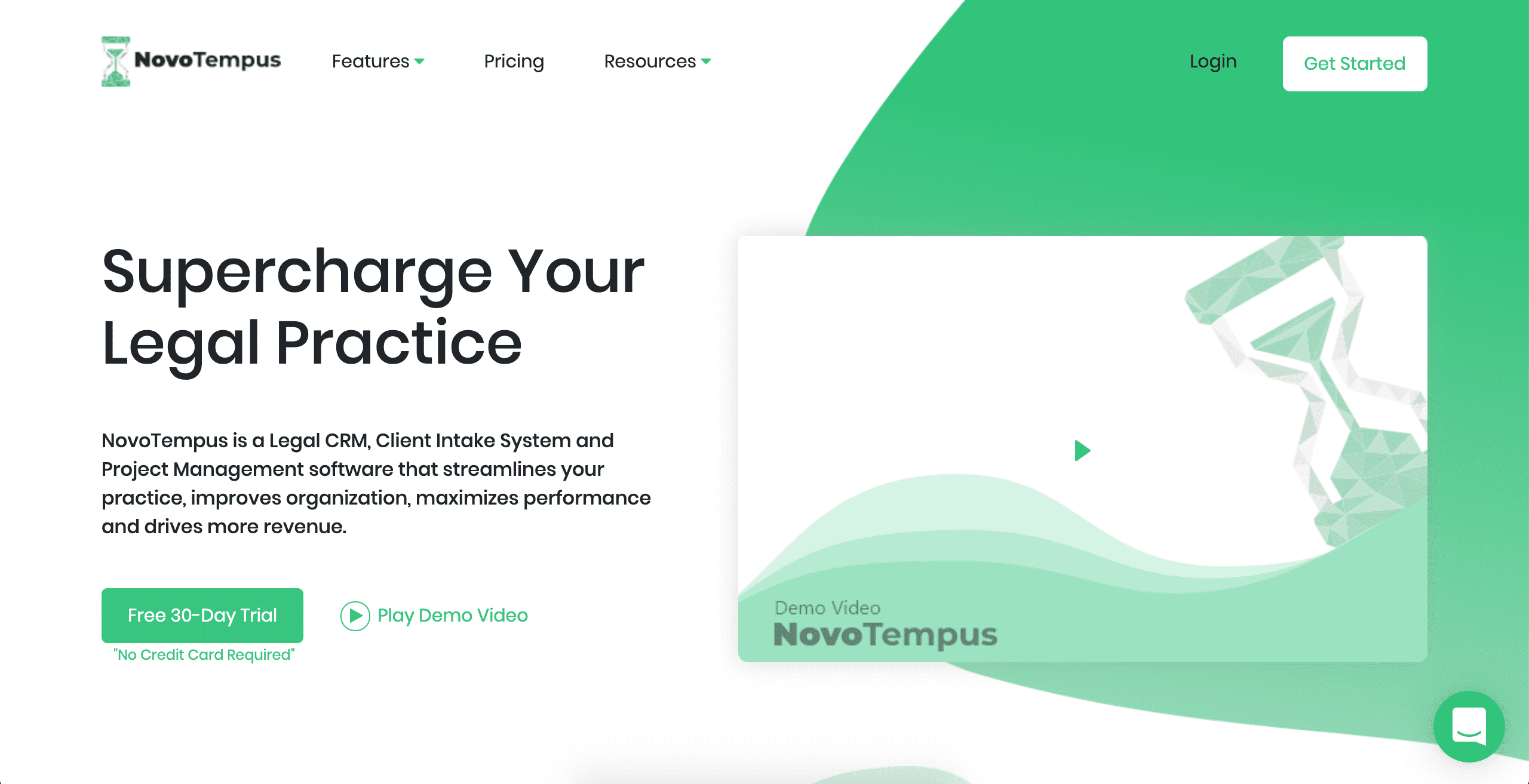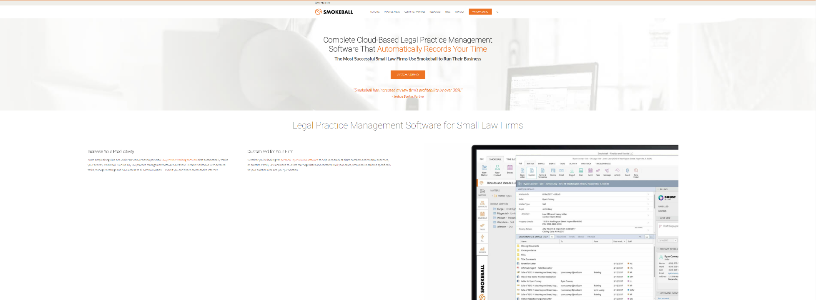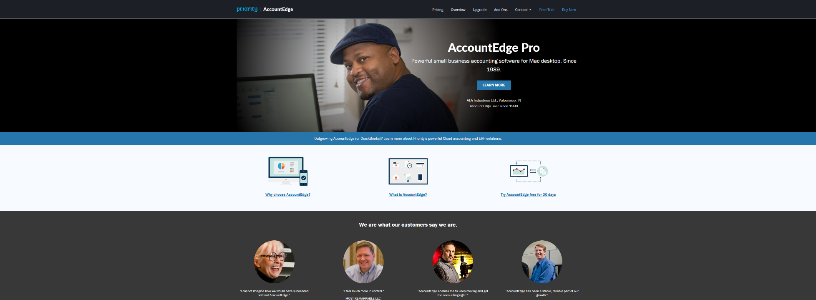Top 10 Attorney Billing Software
Every lawyer understands the importance of tracking billable hours and the impact an automated attorney billing software can make. Like any service business, billing related activities can make or break law firm’s financial viability.
However, a legal practice is quite different from other business services, when it comes to billing. Even within the circle of legal practices, legal billing methods vary. Law firm billing practices also come under preview of state ethics guidelines.
Additionally, while most other businesses deposit client advances in their business account, lawyers cannot do so that easily. Law firm client advances (retainers) need special treatment and must be handled very carefully.
Read More: Top 55 Law Practice Management Software For Small Law Firms
Beyond the financial and compliance aspects, there is much more to legal billing. If done properly, law firms can enhance client satisfaction, minimize collection issues and build long term relationships that result in referrals.
Below you will find a guide that covers:
- Specific legal billing issues
- Typical law firm billing requirements
- Points to evaluate when selecting attorney billing software
Unique Characteristics of Law Office Billing
A variety of constraints make legal billing activities unique.
Read More: Top 6 Best Free and Open Source Legal Software Tools
1. Varied Types of Legal Matters
Most law firms handle a variety of legal cases. Different types of legal matters require completely different billing arrangements. The most common billing arrangements include:
Hourly Billing: A fee arrangement prevalent in family law, estate planning, commercial litigation, elder law, etc. With an hourly billing arrangement, law firm bookkeepers record the attorneys’ billable time against the applicable matter. Any expenses directly related to the matter, such as court, document filing or courier fees are also recorded against the matter. At pre-defined intervals, the firm generates itemized bills showing individualized time/expense details. The process continues until the case is resolved or the attorney-client relationship is terminated.
Fixed Fee: A fee arrangement prevalent in real estate, traffic violation matters, etc. The client is billed for fixed fees plus any costs incurred that are directly related to the matter.
Retainer Based Hourly: Retainers, also referred as advances, are client funds that are received prior to the commencement of legal services. In this arrangement, law firm invoices are paid from the client retainer funds. When retainers fall below a pre-determined level, the law firm issues a request for additional retainer funds.
Contingency: A fee arrangement commonly used in personal injury and debt collection practices. In a contingency fee arrangement, an attorney is paid if a favorable settlement is obtained. First, actual costs incurred are deducted from the settlement and then a fixed percentage of the remaining proceeds go to the attorney(s) for their legal services. If the case is not settled favorably, law firms are typically not reimbursed for costs or their time.
Read More: Top 10 Best Document Management Software for Law Firms
A multi-practice law firm must have an billing system / attorney billing software that accommodates a variety of billing requirements.
2. Matter Based Recordkeeping
Many service businesses bill at the client level. The business may perform multiple tasks for a client, and one invoice may cover all completed tasks. The same process does not work for lawyer billing.
Law firms are usually required to keep each task (called “matter”) completely separate from other matters of same client or other clients.
For example, if client John Smith gives his attorney two assignments, one for a real estate closing and another for will preparation, the law firm must keep track of time and expenses separate for these two matters.
Many aspects of billing are not permitted in law firms. For example, a law firm cannot apply one matter’s remaining balance to pay off another matter’s unpaid invoices without the client’s written consent.
Read More: Top Ten Cloud Based Legal Practice Management Software for law firms
Legal billing requires matter-based recordkeeping, which is only possible by using an automated attorney billing software. All time tracking, handling of client retainer and expense tracking must be handled at the matter level so proper records can be produced in case of client inquires, billing disputes or state audits.
3. State Ethics Rules Govern Attorney Billing Practices
Unlike other professionals who can run their business without state interference on their profit margins, legal practices are more regulated.
Although attorneys can define their own rates, they are regulated by state ethic rules that define how hours are billed and how the law firm does business.
In the event billing disputes arise, ethics rules also make it necessary for lawyers to produce an audit trail of who did what, when and how, and what the client was charged.
4. Handling of Client Retainers Requires the Utmost Care
A standard practice for most law firms is to collect client payments in advance (retainers) for services. While most other service practices simply deposit advances in their general business bank account, law firms cannot do so.
In general, states have strict accounting rules that require depositing unbilled/unearned client funds in attorney trust accounts.
Proper record keeping of attorney trust account transactions is one of the most important bookkeeping functions at law firms. Many states randomly audit attorney trust accounts and discipline lawyers, including disbarments, if gross negligence is discovered.
Read More: Best Legal Case Management Software for Law Firms
Law firms initially deposit client advances in an attorney trust account and transfer money to their business operating accounts as fees are earned. With each billing statement, clients are informed about their remaining retainer balance.
Proper handling of client funds requires a billing system that integrates the closely interrelated trust accounting with billing activities.
How should Lawyers and Attorneys Handle Legal Billing?
In previous section, we have seen how legal billing requirements are fundamentally different from other service businesses.
It is possible to perform entire billing and trust accounting activities manually or with a simple spreadsheet program. However just because it is possible does not mean it is the correct choice.
With so many variety of legal billing options and with some specific options like matter based record keeping, integrated billing & trust activities and adherence to state ethic rules, manuallly bookkeeping can be a complex task and prone to human errors. More importantly, once an error is discovered, it would be hard to fix as years of data might be impacted.
Additionally, time spent on bookkeeping is not billable time. Time is money for law offices. Less time spent on legal billing and attorney trust bookkeeping means more free time, which can be used for billable activities.
It is best to select a quality attorney billing software, which is easy to use and does all the required functions in an efficient manner.
Read More: Best Legal Calendar Software
Top 10 Attorney Billing Software, Legal Billing & Accounting Software for Law Offices:
NOVOTEMPUS
NovoTempus is a Legal CRM, Client Intake System and Project Management software that streamlines your practice and drives more revenue. Free 30 day trial available – No credit card required!

NOVOTEMPUS
COSMOLEX
CosmoLex law practice management software is a fully integrated web-based or cloud-based legal practice management solution for attorneys and law firms. Start using the comprehensive case management software for free! BEST In 2019!!!

COSMOLEX
BILL4TIME
Time Billing Software by Bill4time. The simple & accurate solution to track time online. Simplify your billing, invoicing, recover lost revenue & track time from anywhere.

BILL4TIME
TIMESOLV
Legal billing software to help law firms earn higher profits. Billing, invoicing, time tracking and reporting. Best alternative to Timeslips. Converts seamlessly!

TIMESOLV
CASEFOX
Web-based legal billing software, timekeeping, software for lawyers,legal billing,expense tracking, time billing, trust accounting.

CASEFOX
FRESHBOOKS
Accounting software for small law firms and lawyers, extremely easy to use for the non-accountant. FreshBooks cloud accounting is the best choice for businesses.

FRESHBOOKS
TIME59
Online legal billing software for solo lawyers and small firms. Time59 runs in the web browser of your Mac, PC, iPad, iPhone, or Android device. Updates are automatic, no need to download or install anything. Time59 is 100% web-based software, backed up by powerful encryption and privacy features to ensure the security and integrity of your data.

TIME59
SMOKEBALL
Smokeball is a legal practice management software enables your small law firm to truly become paperless. Watch or Book a Demo to get started.

SMOKEBALL
ROCKETMATTER
Increase your law practice’s productivity and efficiency through Rocket Matter’s cloud-based legal case management software, now in smartphone-friendly form!

ROCKETMATTER
ACCOUNTEDGE
AccountEdge makes your accounting easy. Legal billing software helps you bill for time, invoice clients, and run financial reports. Try for free.

ACCOUNTEDGE
KURENT
Kurent is an easy to use cloud program designed for attorneys who typically don’t use and don’t want to pay for elaborate practice management features.

KURENT
Personal contact info – slikgepotenuz@gmail.com
Permanent Address :- Montville, NJ
CEO and co-founder at Cloudsmallbusinessservice.com